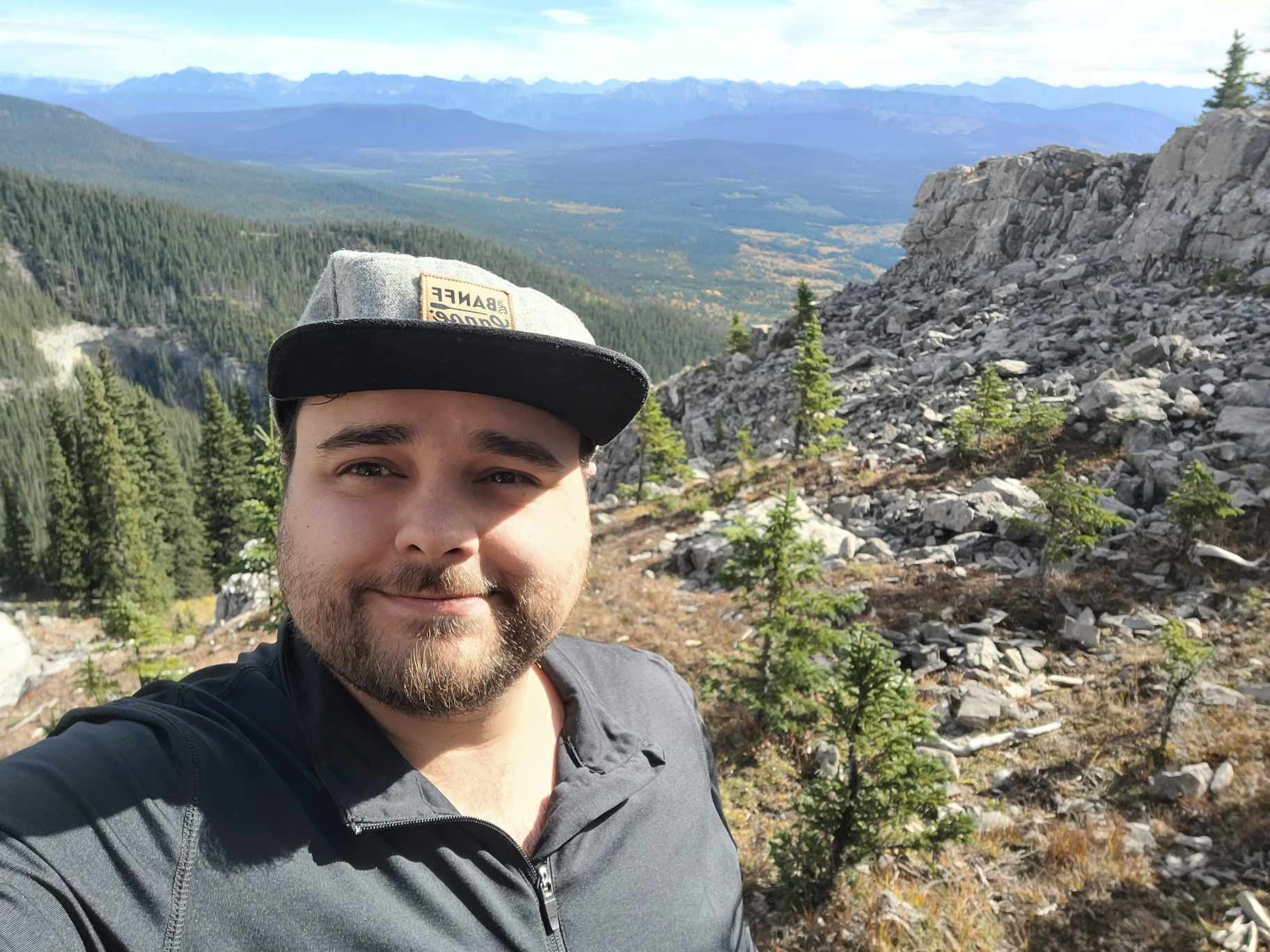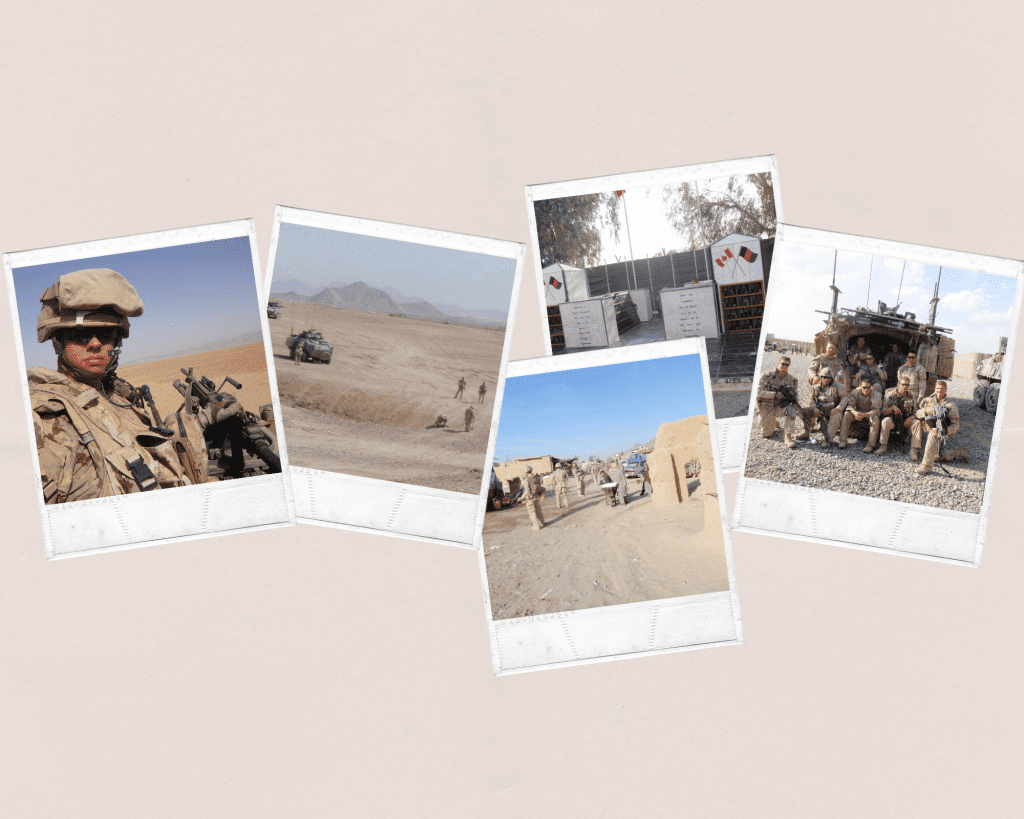- 2025-07-09
- Blog
More than a witness: A military child’s perspective

Hopping out of the car onto a snowy dirt path, surrounded by forest and crisp mountain air, I had to admit the Crossing at Ghost River was breathtaking in its simple serenity. I’d tried to dress nicely for the workshop, in a patterned dress shirt and slacks, but surrounded by all that nature, I felt out of place.
That wasn’t the only reason I felt insecure. As the only military child at the Atlas Institute’s 2025 digital storytelling workshop, I didn’t understand what value I offered that warranted bringing me here for this event. I’d met the two facilitators, Mike and Joy, and the others online — authors, podcasters, athletes, spouses and Veterans. I was the youngest by far and had only recently found stability and purpose. Compared to them, I felt like the odd one out.

Day 1 was simple. Our only task was to listen to each other’s first drafts. The stories were incredibly varied, yet each was powerful. A Veteran’s wife shared how, moments after learning her husband had survived a near-death experience, she had to hold herself together for the kids. One man described the day he chose to make it his mission to prioritize time with himself and his Family. Another detailed the struggle of reintegrating into civilian life and coping with moral injury. One recounted a haunting moment of loss on deployment — sand, maze, silence.
And there I was, swallowed by an oversized chair, with a typed-out story about my dad making it to my theatre shows.
But the others didn’t dismiss me. They listened and gave feedback. Joy said it was moving to hear a Veteran’s child speak and thanked me for being there. Mike was incredibly encouraging, highlighting moments to expand and praising what I’d written. His enthusiasm was contagious.
Day 2 was for workshopping our scripts (and enjoying some of the best food I’ve ever eaten). Mike sat with each of us, helping shape our stories into something dynamic and cinematic. He helped me turn my structured essay into something more emotional and engaging. I called my parents multiple times that day, reading them drafts and making sure they were comfortable with what I was sharing.
By the end of the day, we had final drafts. Then came the voice recordings with Mike. After just three takes, with only minor edits, he said we were done. I asked if we could tweak it more, but he said it already sounded powerful and natural — and that was what mattered.
Day 3 was all about video editing. Mike and Joy walked us through tutorials, giving tips and creative guidance. Mike was a wizard with the software, able to transform any idea into exactly what you had in mind. Mostly, though, we were left to our own devices, sorting through video libraries, royalty-free music and personal photos.
It was intense, especially when you were stuck on reworking the moments that were hardest for you to hear, but we were allowed to take breaks as needed. That calm, crisp nature was always just outside, ready to ease the heaviness of it all.
There was something deeply satisfying about finding just the right clip for a scene or crafting a perfect transition. We all worked silently, headphones on, immersed in our projects. We worried we wouldn’t finish in time, but somehow, by the end of the day we were nearly there.
Day 4 was last and was both the easiest and hardest. After one last incredible breakfast, we had time to polish our projects. It was tough deciding what to cut and what to keep. Joy and Mike helped us make those final decisions.
Then came the big moment: sharing our finished digital stories. I was filled with anxiety — my childhood memories being shown alongside stories of war, loss and responsibility. I remember especially the story of Afghanistan, of the maze — so much clearer now with music and visuals.
When my turn came, I let go and just watched.
Turns out, I had nothing to be ashamed of. My story resonated with everyone. The transition I was proudest of — a bloom from a kitchen table to three horses running together, representing my mum, my dad, and me — landed exactly as I hoped. It meant something to everyone there. It was incredibly validating.
We ended on that high note, relieved to be done, but more so thankful for the chance to tell our stories. Climbing into the car, this time wearing a more appropriate flannel and jeans, I felt more confident in myself — and in my value in this community.
It has been incredibly fulfilling to have my story out there. I have received positive feedback from friends, Family and strangers. I had worried that my story would put a strain on my relationship with my parents, but they seemed to respect me more. They had questions, but they accepted my answers. I feel more confident in who I am now.
— Grant Winfield
Watch Grant’s digital story
Are you a Veteran or Family member with a story to tell? Get in touch with us and you may be featured on this blog!

